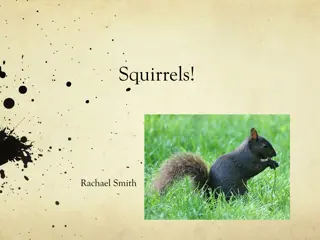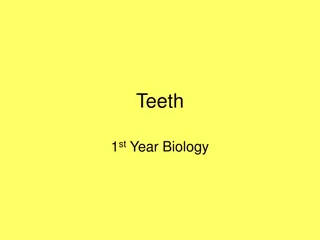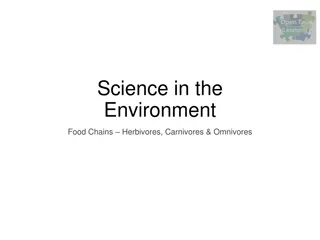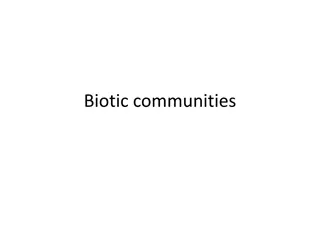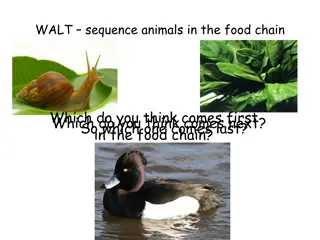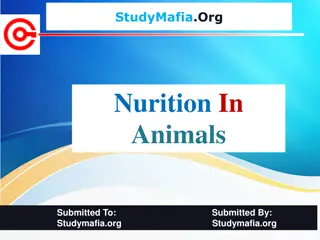Understanding Ecosystems: A Beginner's Guide to Ecology
Explore the fascinating world of ecosystems with Mrs. Hart in this informative biology lesson. Discover the components of ecosystems, from biotic to abiotic factors. Learn how energy flows through the ecosystem, with autotrophs producing energy and heterotrophs consuming it. Identify different types
0 views • 33 slides
Fascinating World of Squirrels: Facts and Insights
Squirrels, with their diverse species and habitats, play a vital role in ecosystems. They are omnivores, living in trees, underground burrows, or old logs. Predators like wolves and humans threaten them, but their agility helps in survival. Discover more about these charming rodents and their intera
0 views • 13 slides
Understanding Teeth: Types and Functions in Biology
Explore the world of teeth in biology, including the four different types of teeth - incisors, canines, premolars, and molars - each with unique functions for cutting, tearing, crushing, and grinding food. Discover how different animals have varied sets of teeth depending on their diet, distinguishi
0 views • 15 slides
Understanding Nutrition and the Human Digestive System
This quiz tests your knowledge on nutrition in the human body and the digestive system. It covers topics such as omnivores, absorption processes, enzymes, and the functions of various organs like the pancreas and intestines. Explore these concepts to enhance your understanding of how food is process
0 views • 50 slides
Understanding Animal Diets: Herbivores, Carnivores, and Omnivores
Explore the world of animal diets by learning about herbivores, carnivores, and omnivores. Discover what different animals eat and the classifications based on their diet preferences. Engage in activities to distinguish between herbivores, carnivores, and omnivores, and understand the special charac
0 views • 14 slides
Understanding Animal Dietary Needs for Health
Animals require the right amount and types of foods to stay healthy. Different animal species have specific diets - herbivores eat plants, carnivores consume meat, and omnivores include both in their diet. Providing the correct food ensures proper growth, strength, and overall health. Giving animals
0 views • 8 slides
Understanding Energy Roles in Ecosystems
Organisms in an ecosystem play essential roles in the movement of energy, with each having a specific function. Energy roles include producers, consumers, and decomposers, each contributing to the balance of energy flow and nutrient cycling. Producers, such as plants, algae, and some bacteria, creat
0 views • 36 slides
Understanding Biotic Communities and Benthic Ecosystems
Living organisms in an area form biotic communities categorized into producers, consumers, omnivores, detrivores, and decomposers. Aquatic organisms such as plankton, benthos, and nekton play vital roles. Benthic communities refer to organisms attached to or burrowing in aquatic ecosystems, influenc
0 views • 17 slides
Understanding the Food Chain in Ecosystems
Explore the concept of food chains in ecosystems by identifying producers, consumers, and their roles. Learn about herbivores, omnivores, and carnivores, and discover examples of each category. Delve into the order of animals in the food chain and where a fox fits in. Gain insights into the importan
0 views • 6 slides
Understanding Nutrition in Animals: Types and Process
Nutrition in animals is vital for their survival, with various categories like herbivores, carnivores, and omnivores. Different modes of nutrition include filter feeding, deposit feeding, bulk feeding, fluid feeding, and suction feeding. The process of nutrition involves ingestion, digestion, absorp
0 views • 14 slides

